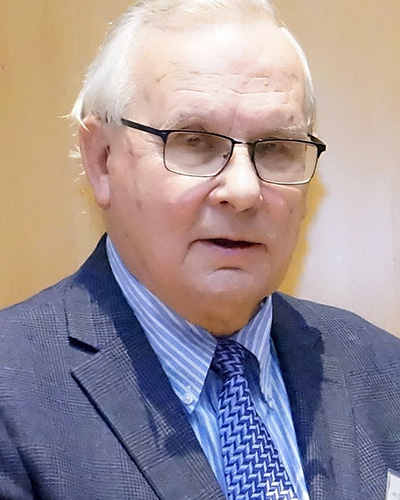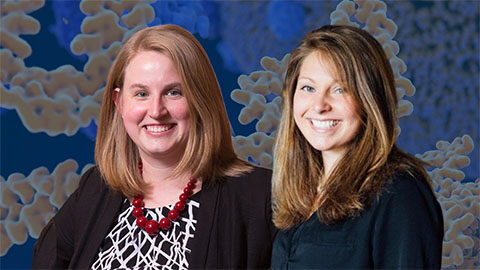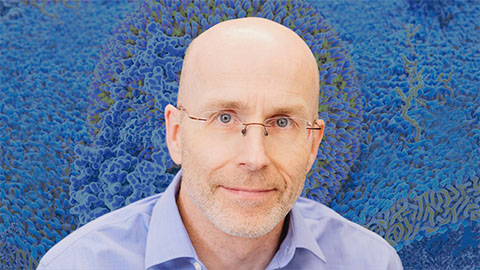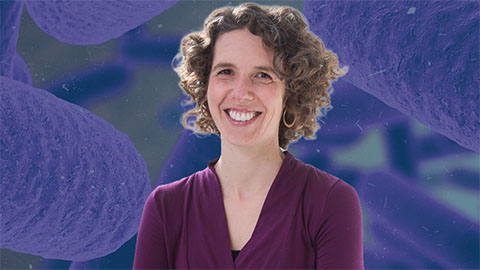In memoriam: Horst Schulz
Horst Schulz, a professor emeritus at City College of New York and at the City University of New York Graduate Center in Manhattan, died Oct. 15 at the age of 88. His work concentrated on increasing our understanding of mitochondrial fatty acid metabolism. He was a member of the American Society for Biochemistry and Molecular Biology since 1971 and served on the editorial boards of several important journals.

Schulz was born Sept. 16, 1936, in Berlin, Germany. He obtained his master’s and doctoral degrees in 1961 and 1964 from the Technical University of Berlin, where he worked with Ferdinand Bohlmann on quinolizidine natural products.
Schulz became a research associate at Cornell University’s Medical College (now Weill Cornell Medical College) where he worked with Vincent du Vigneaud on penicillamine-derived antagonists of oxytocin. After three more years at the Technical University of Berlin, where he published on the biosynthesis of polyacetylenes in plants, he joined the Duke University Medical Center in 1968 to work with Salih J. Wakil, where he published on the mechanisms of fatty acid biosynthesis.
In 1970, Schulz began his tenure at City College and at the CUNY Graduate Center. In 1978 and 1979, he was a visiting associate professor at Cornell University in the laboratory of Ephriam Racker, with whom he published on carnitine transport. He retired as full professor and executive officer of the CUNY Graduate Center’s Biochemistry Doctoral Program in 2007.
Schulz’s research interests concentrated on fatty acid metabolism, on which he published 130 of his 140 papers. His published work has been cited over 5,000 times. His 1991 review on Beta Oxidation of Fatty Acids has been cited 534 times. His 2004 Journal of Biological Chemistry paper, Leaky β-Oxidation of a trans-Fatty Acid, was fundamental to our understanding of how trans fats are harmful to human health.
Schulz mentored 33 doctoral students. The Horst Schulz Award is the highest award given by the CUNY Graduate Center’s Ph.D. program in biochemistry and, since 2008, is awarded annually to the biochemistry doctoral student with the best first-authored paper.
Horst Schulz leaves behind his wife Barbara; his children, Kurt, Karina and Nadja; his brother, Knut; and four grandchildren.
Enjoy reading ASBMB Today?
Become a member to receive the print edition four times a year and the digital edition monthly.
Learn moreGet the latest from ASBMB Today
Enter your email address, and we’ll send you a weekly email with recent articles, interviews and more.
Latest in People
People highlights or most popular articles

Creating change in biochemistry education
Pamela Mertz will receive the ASBMB William C. Rose Award for Exemplary Contributions to Education at the ASBMB Annual Meeting, March 7-10 in Washington, D.C.

Amacher, Pollock named Henry Dreyfus scholars
They were recognized for their outstanding research scholarship and a deep commitment to undergraduate education and each received $75,000 to fund their research.

Trainee mentorship as immortality
Suzanne Barbour will receive the ASBMB Sustained Leadership Award at the ASBMB Annual Meeting, March 7-10 in Washington, D.C.

Life in four dimensions: When biology outpaces the brain
Nobel laureate Eric Betzig will discuss his research on information transfer in biology from proteins to organisms at the 2026 ASBMB Annual Meeting.

Fasting, fat and the molecular switches that keep us alive
Nutritional biochemist and JLR AE Sander Kersten has spent decades uncovering how the body adapts to fasting. His discoveries on lipid metabolism and gene regulation reveal how our ancient survival mechanisms may hold keys to modern metabolic health.

McRose awarded Packard fellowship
She will receive $875,000 in research funding over five years.

